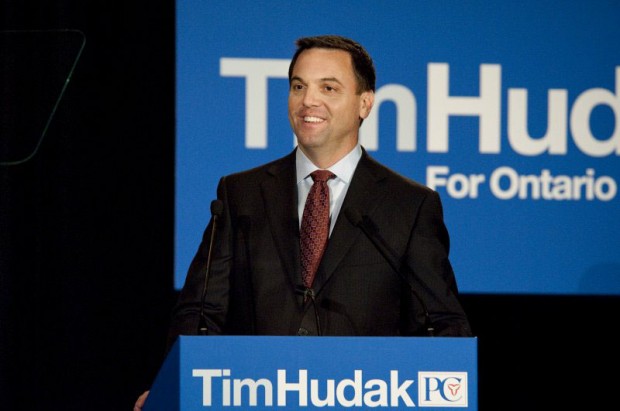By Glyn Bowerman
Canada’s biggest private sector union is on a cross-country campaign to defend collective bargaining rights, stopping Friday in St. Catharines, Ont.
The recently formed Unifor, representing some 300,000 workers, cites federal and provincial proposals for labour reform as the impetus for the nationwide campaign.
Bill Murnighan, Unifor’s research director, said the goal is “to speak to our members and our activists about all sorts of threats to union security” where federal and provincial governments are attempting to legislate-away longstanding workers’ rights.
Recently in Ontario, PC opposition leader Tim Hudak floated plans for “right-to-work” legislation, which would eliminate the requirement for workers in unionized shops to join the union or pay dues.
“This is a very crafty set of words,” Murnighan said. “It’s absolutely got nothing to do with a right to work, a real right to work would be a right for everyone to have a good job.
“This is about making it illegal for workers to bargain strength for their unions and having union security. So [Hudak’s] clearly trying to use this as a divisive issue to try and pit working Canadians, one against the other, and I don’t think it has much support.”
Murnighan said it’s a right in Canada for workers to decide whether or not to unionize, but if the majority does choose to, it’s fair to expect everyone to pay their dues.
“This has got nothing to do with democracy or fairness,” Murnighan said. “This is all about trying to drive-down wages.”
He said the idea weakening unions will be good for the economy is “absolute nonsense.”
Not so, said Ontario PC labour critic MPP Monte McNaughton.
“Union dues lower wages, taxes lower wages and electricity bills lower wages,” McNaughton said.
“We can’t defend the status quo. We’ve lost 300,000 manufacturing jobs in Ontario and every day there’s another company leaving the province.”
McNaughton said businesses tell him electricity bills, the size and cost of government and outdated labour policies are forcing them elsewhere.
“And if we want to increase wages in the province Ontario, one way is to give people an option if they want to opt-out of paying those union dues.”
McNaughton said the three states in the U.S. creating the most manufacturing jobs are Texas, Indiana and Michigan – each of which have “right-to-work” laws in place.
“Our companies are not going to China, and they’re not going to India now,” McNaughton said. “We’re losing companies to northern U.S. states. We can darn well compete with U.S. states.”
While “right-to-work” was left out of Hudak’s latest policy paper, the issue continues to be a thorn in his side. Hudak dropped Windsor area PC candidate Dave Brister, Tuesday, for tweeting his opposition to the idea, including tweets directed to McNaughton.
In a message to residents on his website, Brister wrote “sometimes taking a stand comes at a high price.”
“My hope is that the steps I’ve taken to date will eventually result in the exclusion of RTW from the PC platform.”
For Unifor’s Murnighan, the antipathy towards labour in Canada is the result of a weak job market, which he said can pit people against each other.
“People are frustrated and there’s an open ear at times, when they see someone who’s got a good job, with some rights at work and decent pay, to be envious,” said Murnighan.
“Rather than think to themselves about how they can achieve a better workplace, or better standards, it gets turned into ‘well why don’t we knock them down a peg?’”
“That’s a very divisive approach. But I think, in times of high unemployment and a lot of frustration that might resonate with some people.”
The Unifor campaign makes its next stop in Winnipeg, Monday.


